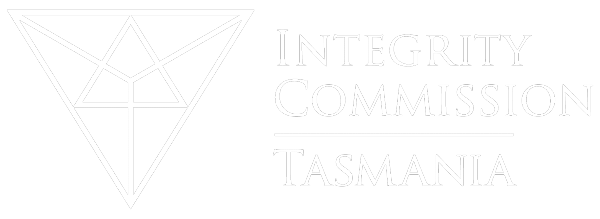The Integrity Commission has today released a research paper considering the existing offences under the Tasmanian Electoral Act and the oversight powers of the Tasmanian Electoral Commissioner.
The research paper is part of a series about ethical conduct and potential misconduct risks in Tasmanian parliamentary elections.
Integrity Commission Chief Commissioner, Greg Melick, said the primary objective of the research papers is to ensure appropriate discussion on ethical conduct issues and potential misconduct risks that have been identified relating to elections throughout Australia.
‘Our aim is to ensure that these risks are communicated to the public and to promote discussion about potential solutions. It is essential that the public have trust that elections are carried out ethically’, said Chief Commissioner Melick.
Paper 1: Tasmanian Electoral Act offences and campaign conduct (PDF, 1.8 MB), released today, considers the risk of ‘indirect electoral bribery’ – otherwise known as ‘pork-barrelling’ – in Tasmanian parliamentary elections. While not an offence, indirect electoral bribery is the promise or giving of a benefit to a small or localised group of electors to, collectively, ‘buy’ their vote. This differs from the offence of ‘traditional’ electoral bribery, which is aimed buying or influencing the vote of individual electors.
Chief Commissioner Melick said indirect electoral bribery poses a threat to public confidence in elections.
‘Indirect electoral bribery can amount to questionable conduct from an ethical perspective, if not a legal one. It is rarely criminal and would not usually amount to misconduct, particularly given the existing traditional offence of electoral bribery under the Electoral Act either exclude a “promise of public policy or … public action”.
‘However the risk is that candidates or parties may use public resources and funds for electoral advantage. Candidates must be free to publicise their policies and how they are to be funded, however any funding commitments must be linked to public and transparent policies’, said Chief Commissioner Melick.
Paper 1 also considers the oversight functions and powers of the Tasmanian Electoral Commissioner. The Commission’s research has identified a number of options for reform to ensure conduct during parliamentary elections is better regulated. A draft of the paper was included in the Commission’s submission on the recent consultation on the draft bills arising from the Government’s review of the Electoral Act.
The research paper series forms part of the Commission’s educational function under the Integrity Commission Act 2009. The risks identified in the research papers draw upon complaints, assessments and investigations, research from open source information including from other jurisdictions, and communications to the Commission. Options being considered for future papers include: electoral issues such as ‘grants’/pledges/commitments made prior to and during election periods; use of resources during a campaign period (including Ministerial and other parliamentary staff time); and truth in electoral advertising and ‘scare campaigns’.
They will include previous work by the Commission into conduct during the 2018 Tasmanian House of Assembly election. That work focused on policies, practices and procedures under which funding is promised to community groups, including systemic issues around the scale of election commitments, and whether the processes for determining recipients are sufficiently transparent.
The research papers will be published over the next 12 months. They, along with other research being conducted by the Commission, will be available on the Commission’s website:
Media release by Greg Melick AO SC Chief Commissioner
Expert commentary
For comment and interviews on this issue please contact:
- Professor Graeme Orr, School of Law, University of Queensland
0434 525 398 - Professor Richard Herr, School of Social Sciences, University of Tasmania
0467 666 996
Media contact
Michael Easton, Chief Executive Officer
michael.easton@integrity.tas.gov.au
Ph: 1300 720 289
